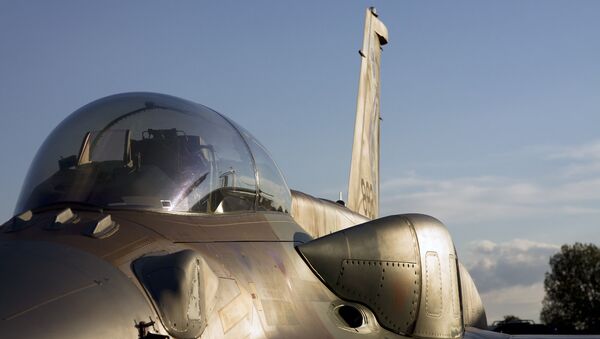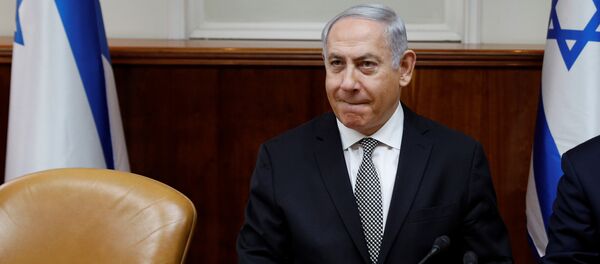Israel's Defense Forces released a statement Wednesday saying they had destroyed a "nuclear facility in the "last stages of construction" in Der ez-Zor in September 2007. Israeli Intelligence Minister Israel Katz tweeted that the strike was a "message" that Tel Aviv would "never allow nuclear weaponry to be in the hands" of those who threaten it, with Prime Minister Benjamin Netanyahu praising the operation in his own tweet.
Syria denies that the site was a nuclear facility, saying it was a weapons storage depot that was under construction.
Sputnik: Why has this information been disclosed only now, 11 years after the fact?
Meir Litvak: The two major figures, former Prime Minister [Ehud] Olmert, and former [Ehud] Barak wanted to publish their memoirs; each of them very much wants to take credit for this operation, and therefore they applied pressure on the government to allow the publication of this event; there's no major [broader] political reason behind it. It's much more of a political play inside Israel.
Sputnik: Syria has denied that the facility had a military purpose. Has there been any incontestable evidence suggesting the opposite, and how justified was the strike?
Meir Litvak: If Syria had peaceful intentions, they would have announced that it had been a peaceful reactor for energy purposes but it did not.
First of all, Syria hid the fact that it was building a reactor. If it had been a peaceful installation, why hide it? Secondly, it was built in an area where there is no economic logic to build it. It was a hundred kilometers away from any major urban or rural settlements; so it would be a major waste of energy and money to transfer electricity from a remote place like this to cities.
Third, Syria is a signatory of the [Treaty on the Non-Proliferation of Nuclear Weapons], and building this reactor without informing the International Atomic Agency is a violation of the NTP, and again indicates that Syria's intentions were not honest at best, or peaceful. In fact it was hiding a military installation.
Sputnik: Israel's intelligence minister has reportedly stated that the strike was a message to Iran. What are your thoughts on that, and what reaction are we expected to get from Iran now?
Meir Litvak: I'm not sure that it was indeed a message to Iran at the time; it's possibly a retrospective message. The message was or has been that Israel would not agree to the development of the military nuclear option by its neighbors that would threaten its existence.
In those years, Israel was concerned by the Iranian nuclear development; there was fear that Iran was developing a military capability. Probably, the idea was to convey a message to the Iranians that Israel would not agree to the development of military nuclear options of Iran. And also maybe that Israeli threats would prompt the international community to apply a greater pressure on Iran to abstain from military developments.
Sputnik: How could this admission affect the already tense situation that we're seeing in the Middle East, and what do you think may follow it?
Meir Litvak: I doubt very much that it will have much effect. The story has been known in the past. The Syrian government denied it, because as a face-saving formula, it did not want to admit its failure to defend its airspace. There are dangers on the Israeli-Syrian border, because of the activities of pro-Iranian militias, who want to build bases near the Israeli border in order, as they say, to start a new fight against Israel. This is a greater threat for a possible escalation between Israel and Syrian or maybe Iranian forces in Syria. I don't think that the nuclear reactor [story from] 11 years ago is the issue.
The views and opinions expressed by Meir Litvak are those of the expert and do not necessarily reflect those of Sputnik.



